本文由 浙江大学建筑设计研究院 授权mooool发表,欢迎转发,禁止以mooool编辑版本转载。
Thanks UAD for authorizing the publication of the project on mooool. Text description provided by UAD.
浙江大学建筑设计研究院:本项目位于传统书法之乡——江苏沭阳,定位为展示和传承沭阳书风的专题美术馆。
UAD:This project is located in the hometown of traditional calligraphy, Shuyang, Jiangsu province, and is positioned as the calligraphy art museum to display and inherit Shuyang calligraphic style.
建筑从书法作品中提炼出最为根本的黑白红三色,总体布局取意“乱石铺街”的书法审美意趣,通过控制建筑的体量大小,空间收放,材质对比等关系,契合书法艺术中虚实,轻重,开合,聚散等变化。
The concept of architecture abstracts the most fundamental three colors, black, white and red of Chinese calligraphy from rice-paper, brush-pen, seal and creates a pure space experience with pure colors. The aesthetic interest of the calligraphy in the architectural layout referring to Zheng Banqiao’s calligraphic style is to respond to the ideological and practical work, the light and heavy, and the opening and closing of the calligraphy through controlling the size of the building, the space, the contrast of the materials and so on.
沿街最大的红色展厅红砖外墙,如同一枚凝实的刻章,印盖在飘逸的水墨画卷上。局部通过弧形削切的手法强化体量沿街的标志性,形成独特的韵味。红砖外墙精选特制的宜兴陶土砖,根据所处位置的不同采用三种砌法,下部丁头突出墙面,上部丁头退进墙面,削切部分一丁一顺平砌,构成不同的肌理质感。
The largest exhibition hall along the street has the red-bricked exterior wall, like a condensed seal printed on the elegant scroll of ink and wash. The way of cutting the corner through the arc surface strengthens the iconic character of the building along the street, forming a unique lasting appeal. Red brick is Yixing clay brick, adopting three kinds of lining according to the different locations. The lower brick head outstand the wall, and the upper part intrudes the wall, and cut part is flatly lined, forming different textures.
墨色体量角部均施以削切,以深灰色氟碳漆喷涂,在蓝天反射下墙面呈现出微妙的色泽变化,如巨石,如墨块,展现雄浑拙朴的质感。体量底部均做圆角处理,以扎根于土地的姿态体现书法艺术中的凝重感。
白色体量选用预制混凝土挂板,表面均做竖向凿毛处理,如宣纸,如素绢,与光洁细腻的墨色体量表面形成对比,相映成趣。体量底部均凌空悬挑,呈现出漂浮的状态,体现书法艺术在精神层面的超脱感。
The ink volume and angle are cut and painted with dark grey fluorocarbon paint, and the wall presents a subtle color change in the blue sky, such as the giant stone, such as the ink block, with a simple and profound texture. At the bottom of the body, the rounded corners are processed to show the sense of gravity in calligraphy.
The white volume selects prefabricated concrete hanging board, and the surface is treated with vertical chisel, such as rice-paper, which formed delightful contrast to the smooth and fine ink surface. The bottom of the body is overhanging to show a floating state, reflecting the spirit of detachment in calligraphy.
入口沿街处设置了宁静的水面阻隔外界喧嚣,再由一条水面上的平桥将游人引入美术馆内,通过空间的连续过渡使得游人在进入展厅前能够迅速沉静心灵。
The tranquil water in the entrance is set up to keep off the noise of the outside world, and the visitors are introduced into the gallery by a bridge on the surface of the water. The continuous transition of space makes the visitors compose the mind quickly before entering the exhibition hall.
大小不一的体量内均是不同主题的书法展厅,所有的展厅均为大开间的无柱空间,可根据展览需要自由布展。展厅与展厅之间通过玻璃连廊相通,以利于连续观展。红砖展厅中部以贯通三层的光井,营造明亮通透的室内空间。
All the exhibition halls are open space without columns, which can be arranged freely according to the exhibition needs. Glass corridor connects the exhibition halls, in order to facilitate continuous exhibition. In the middle of the red bricked exhibition hall, there are light wells through 3 floors, which create bright and transparent indoor space.
体量之间以“疏可跑马,密不容针”的手法控制相互关系,在紧密处仅留2米宽的窄巷,两侧均为纯粹的黑白体量,人在其中如行书卷间。疏朗处空间转为开放庭院,营造豁然开朗的空间效果。
The space relationship is controlled by the layout of “sparse enough to run horse, dense enough with no needle”. It is close to keep a narrow lane of only 2 meters wide. Both sides are pure black and white volume, making people feel to walk among the books. The space will turn to open courtyard and create an open space effect。
室内外间局部以内向掏挖的方式形成灰空间,室外空间可在此延续入室内休息区,游客能够在参观过程中产生充满趣味性的空间体验。
There is a gray space in the way that the volume of the body is dug in introverted manner, and the outdoor space can be extended into the indoor rest area. The tourists can enjoy the interesting space experience during the visit.
景观铺地和屋顶庭院以水墨晕开时的抽象图案为设计意向,共同构成了一幅飘逸潇洒的水墨画卷。
The paved road and roofed courtyards are inspired by the abstract pattern of the ink spreading. Through the different grayscale changes of the granites in the paved fields, an ink painting is formed.
▼总平面图 Master plan
▼各层平面图 Floor plan
▼剖面图 Section
▼模型 Model
项目名称:沭阳美术馆
项目地点:中国江苏省宿迁市沭阳县学院路与南湖南路交叉口
项目类型:美术馆
项目面积:10475 m2
设计范围:建筑、结构、给排水、电气、暖通、景观
建筑设计公司:浙江大学建筑设计研究院
项目负责人:董丹申
建筑:陈建、倪剑、蔡弋
结构:魏开重、吴帅
给排水:周欣
电气:李平、叶劲
暖通:潘大红、张敏敏
景观:蔡笑昂、汪慧
摄影师:赵强
Project Name: Shuyang Art Museum
Project Location: Intersection of South Nanhu Road and Xueyuan Road, Shuyang County, Suqian City, Jiangsu Province, China
Project Type: Art Gallery
Project Area: 10475 m2
Design Scope: Architecture, Structure, Water Supply and Drainage, Electric, Heating and Ventilation, Landscape
Architectural Design: The Architectural Design & Research Institute of Zhejiang University Co., Ltd. (UAD)
Project Leader: DONG Danshen
Architecture Design: CHEN Jian, NI Jian, CAI Yi
Structure Design: WEI Kaizhong, WU Shuai
Water Supply and Drainage Design: Zhou Xin
Electrical Design: LI Ping, YE Jin
Heating and Ventilation Design: PAN Dahong, ZHANG Minmin
Landscape Design: CAI Xiao’ang, WANG Hui
Photographer: ZHAO Qiang
更多 Read more about: 浙江大学建筑设计研究院


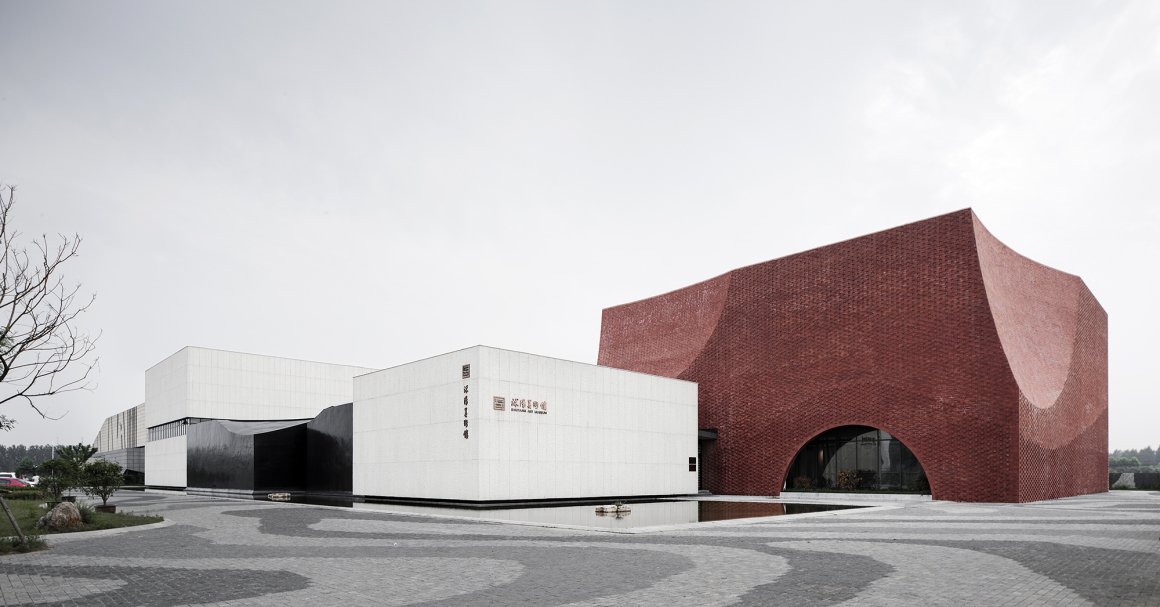
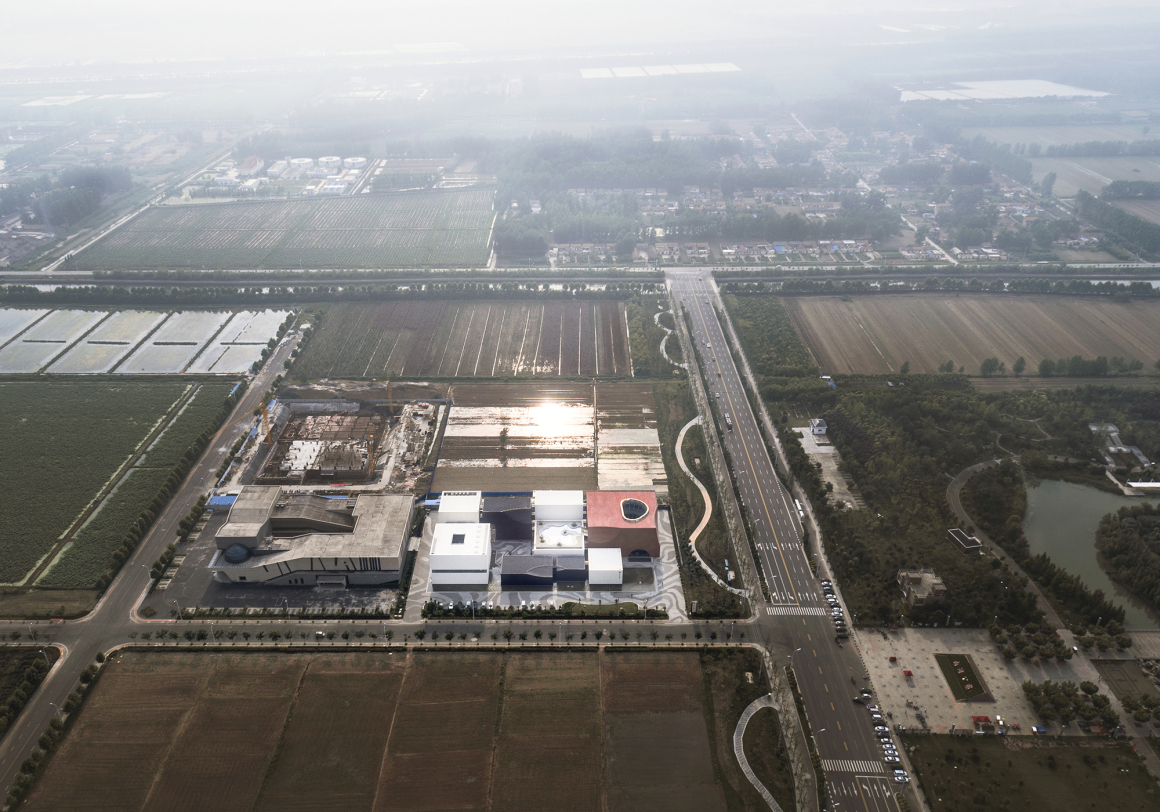
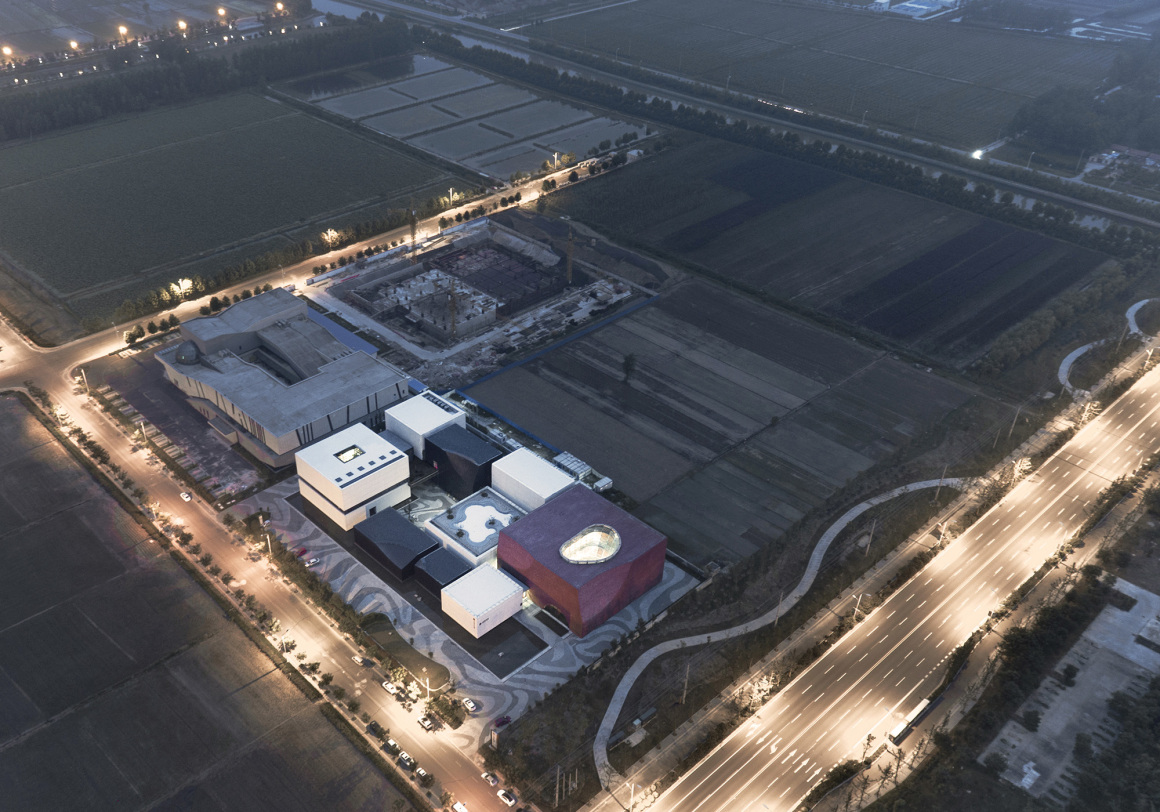
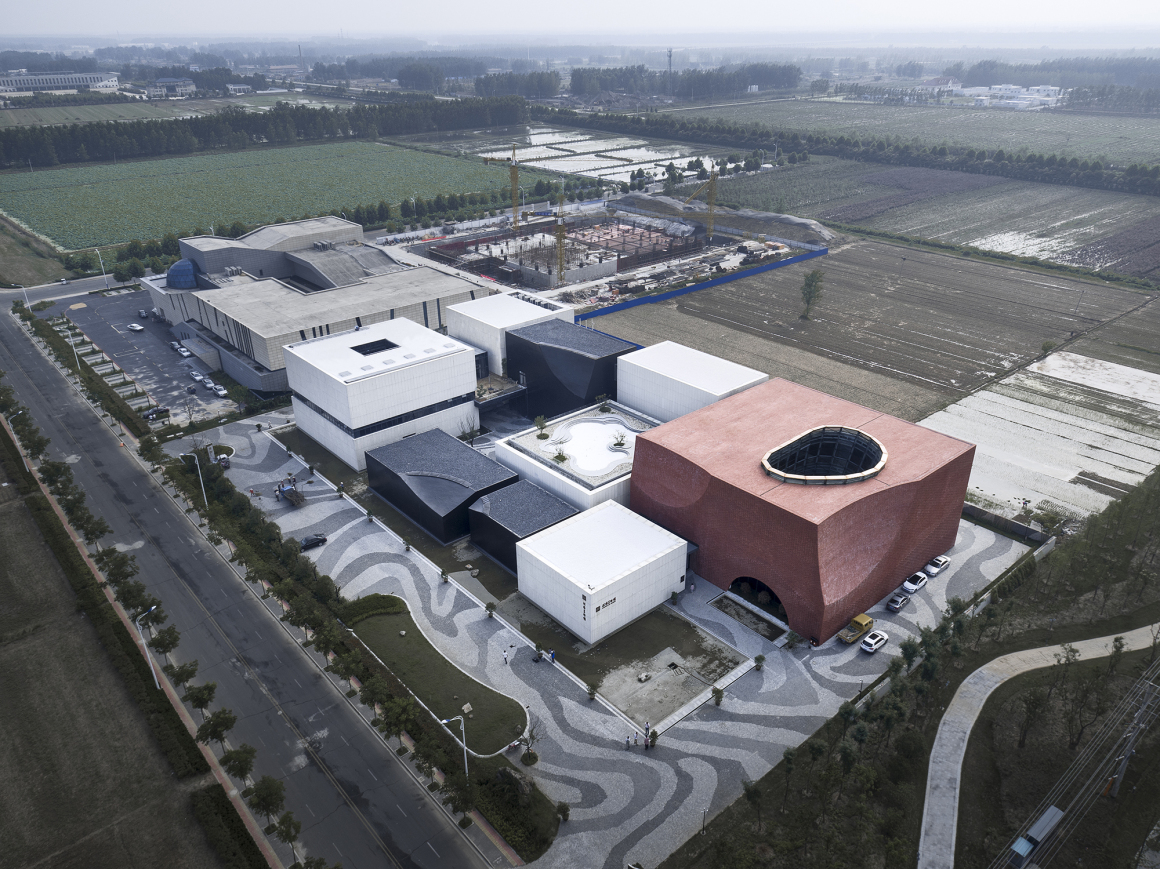
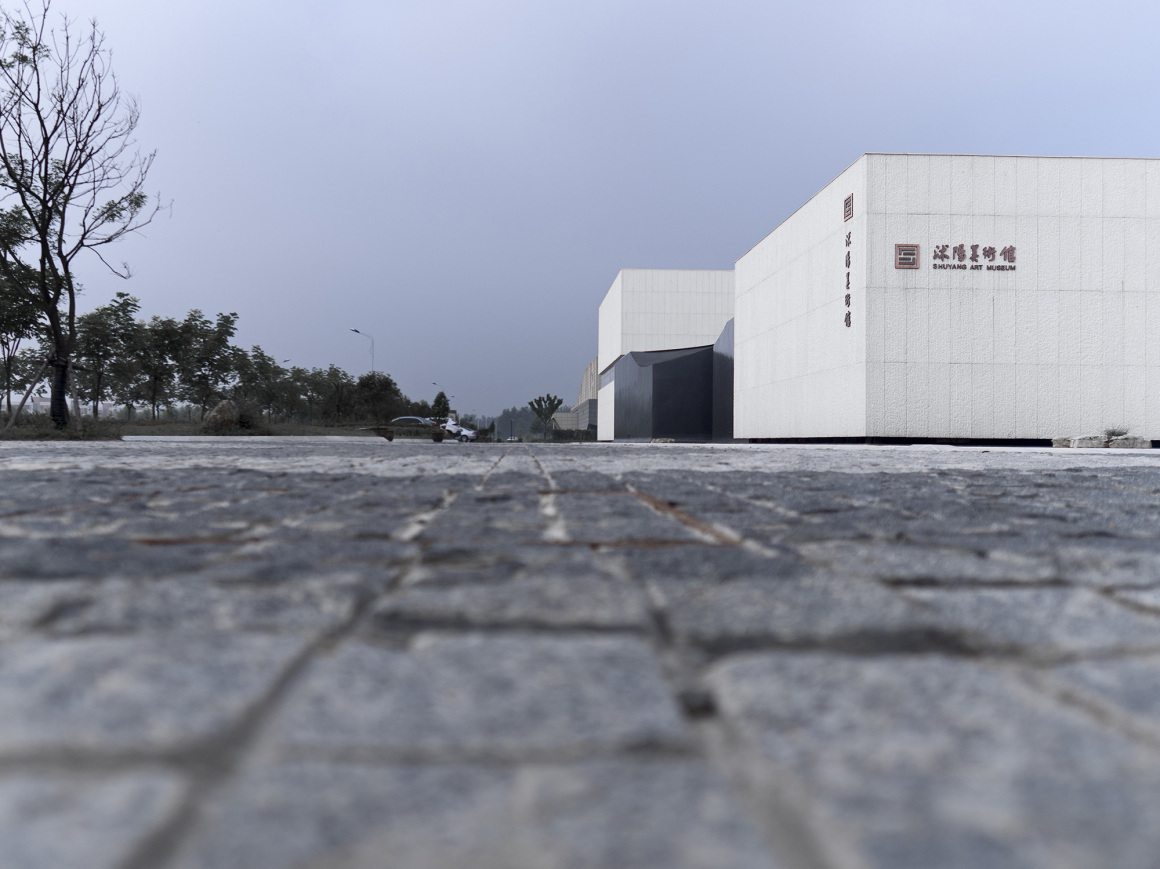
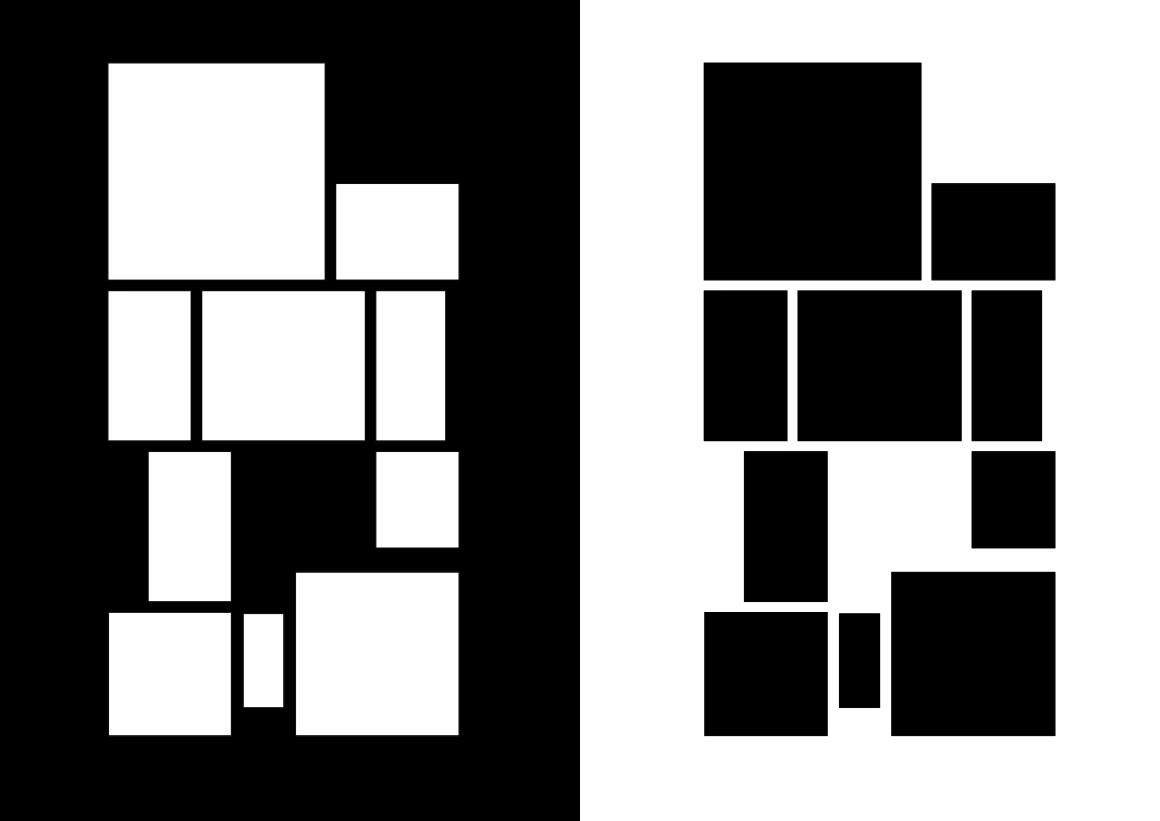

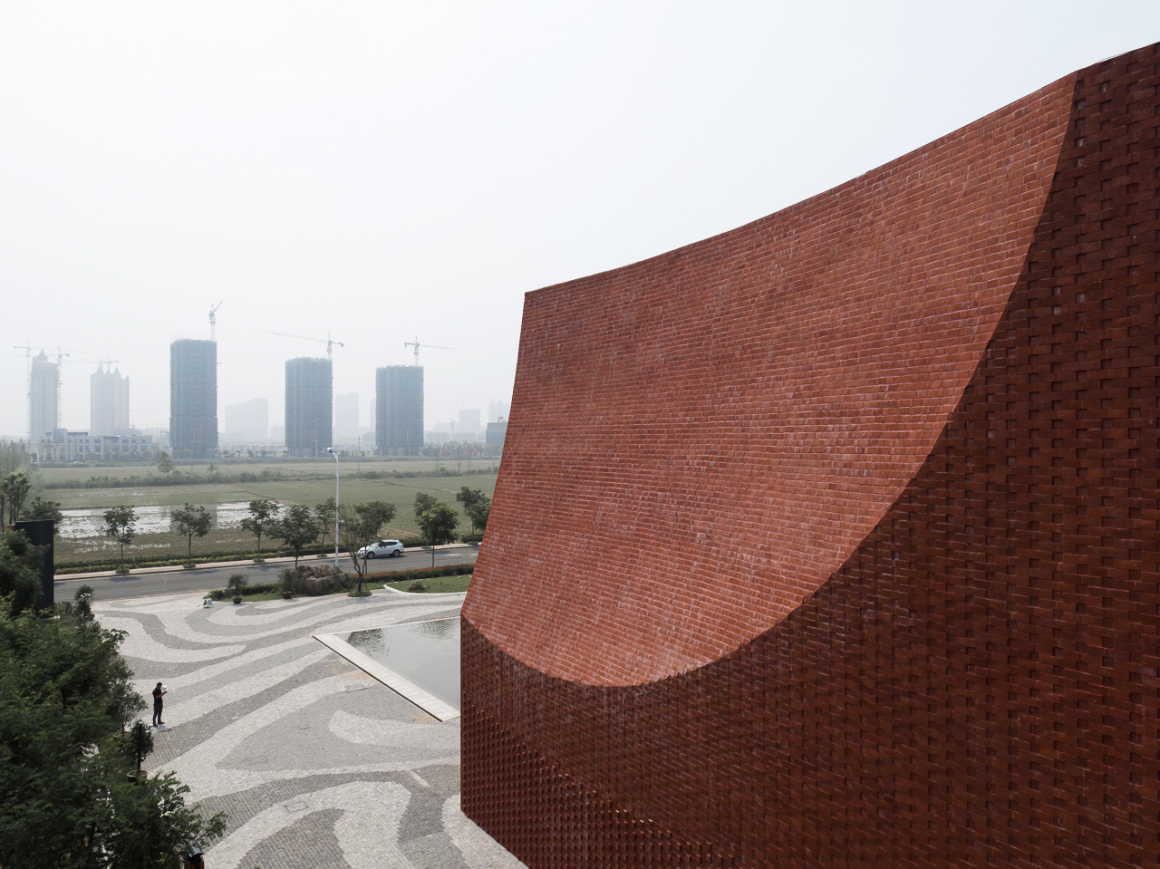

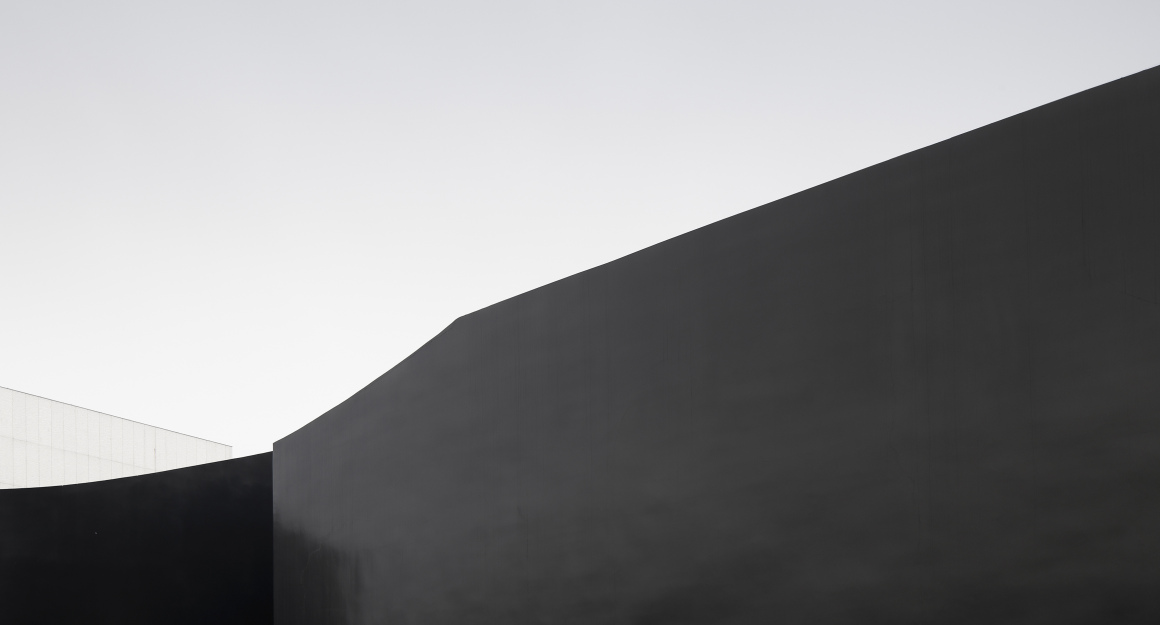
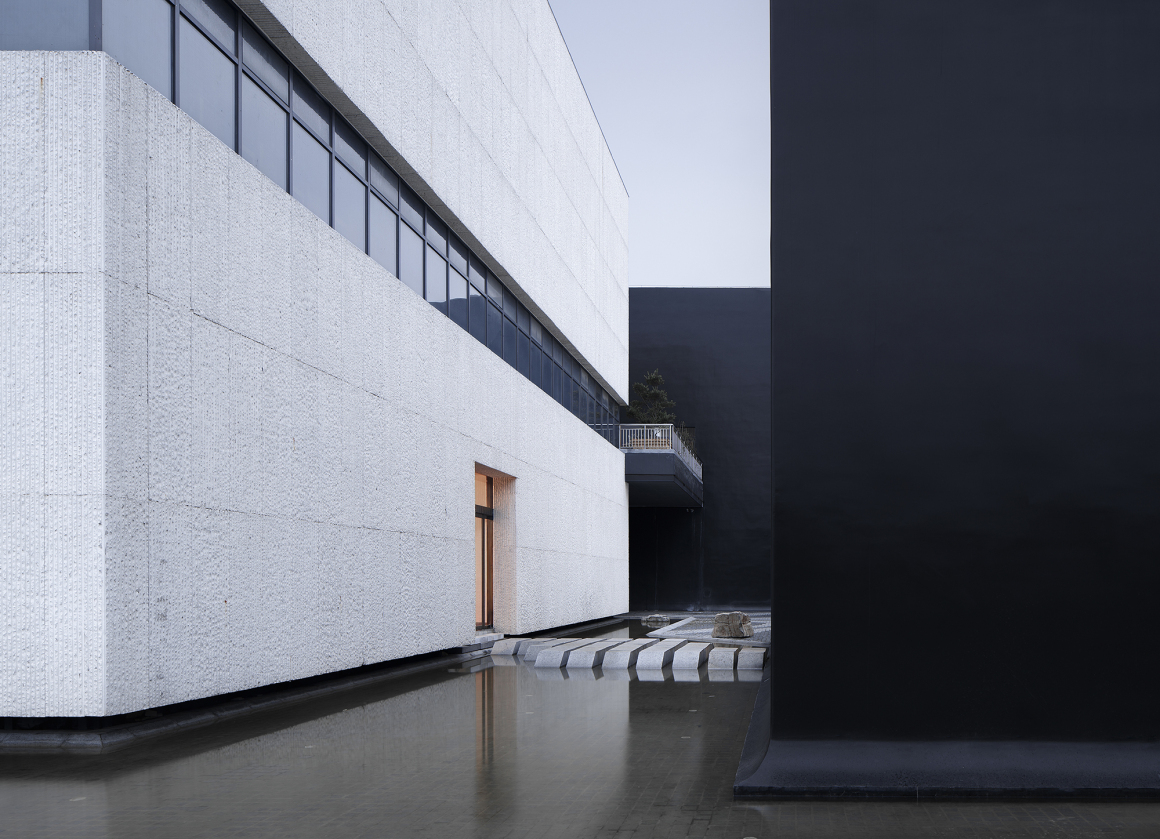
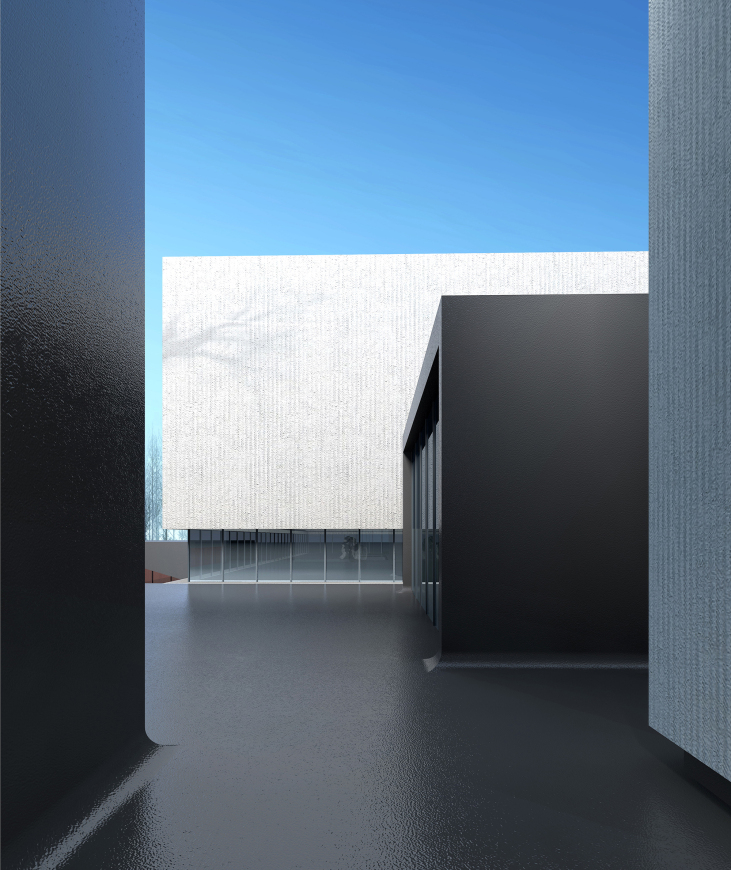
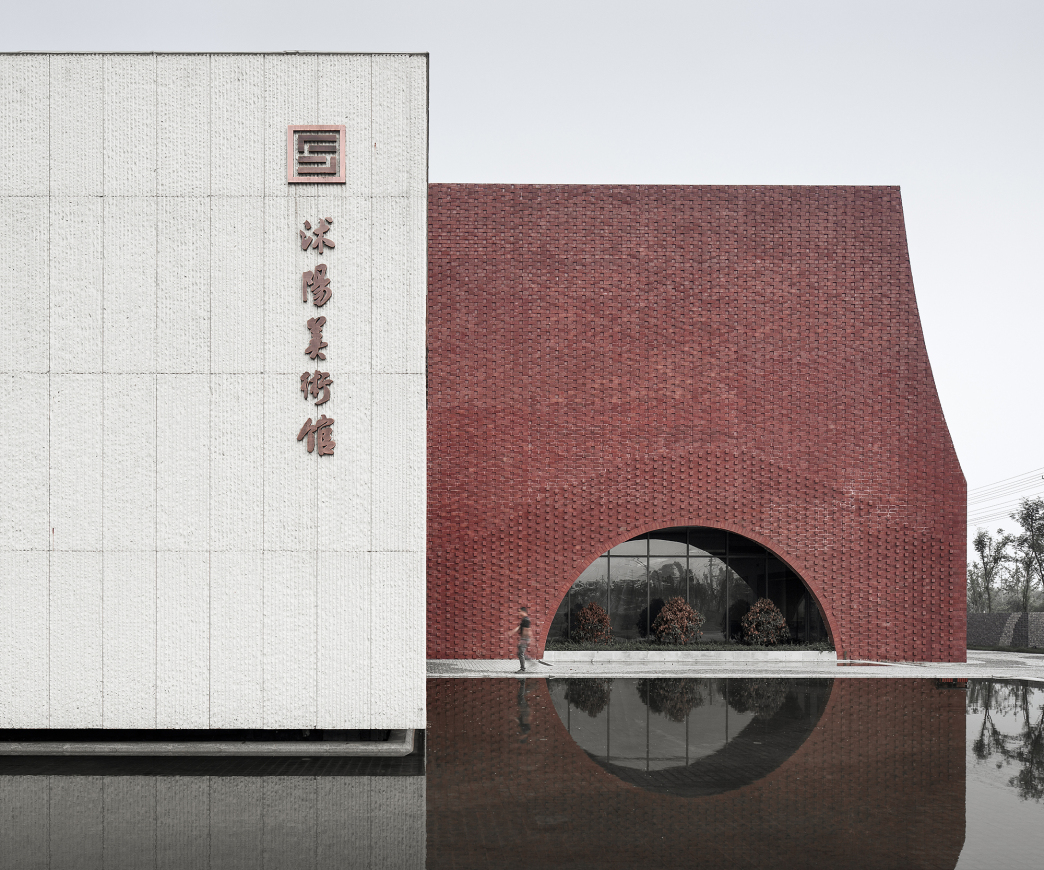

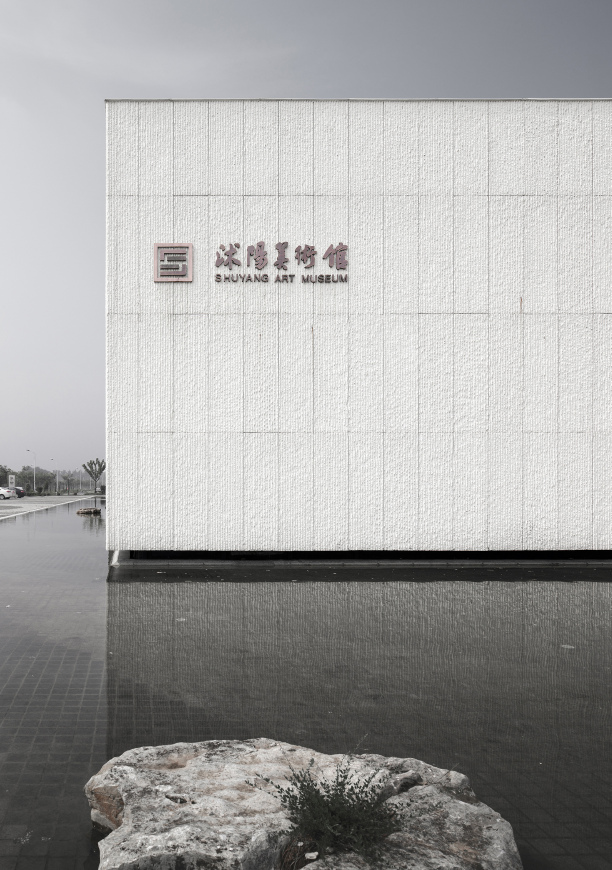
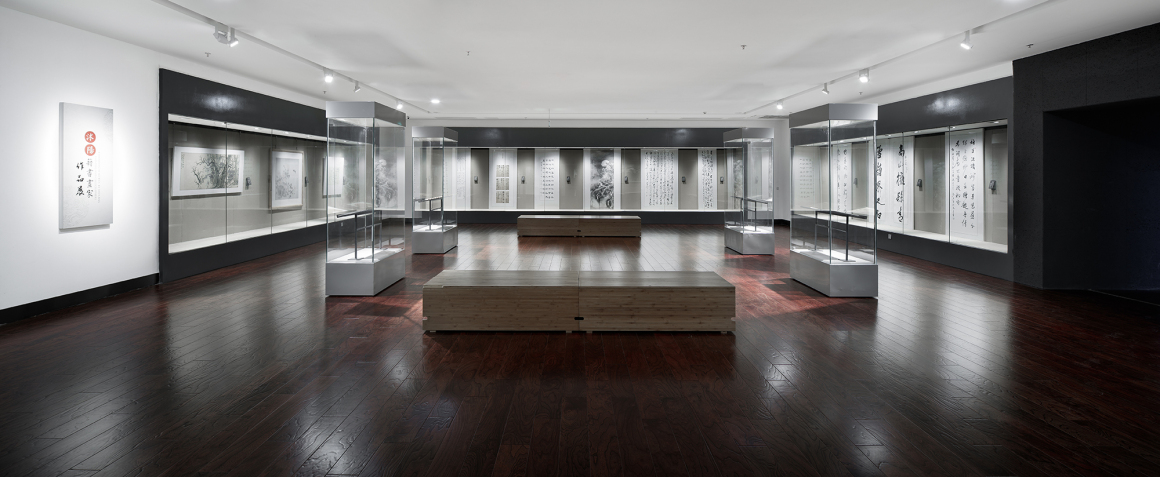
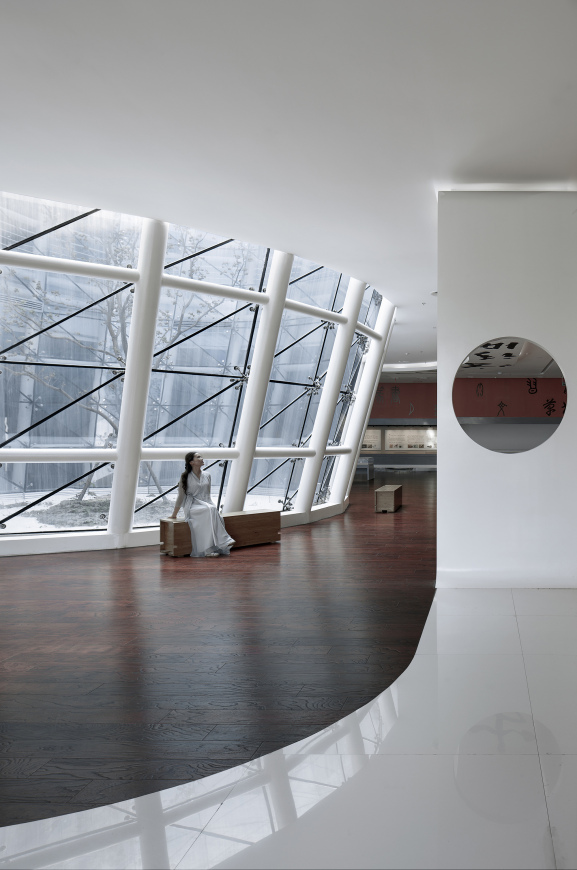
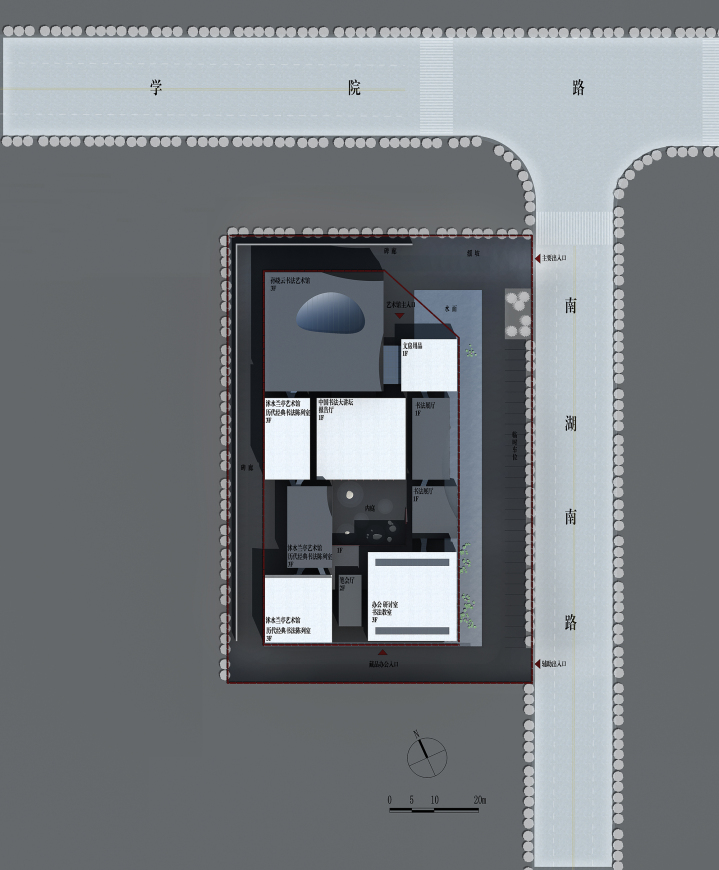
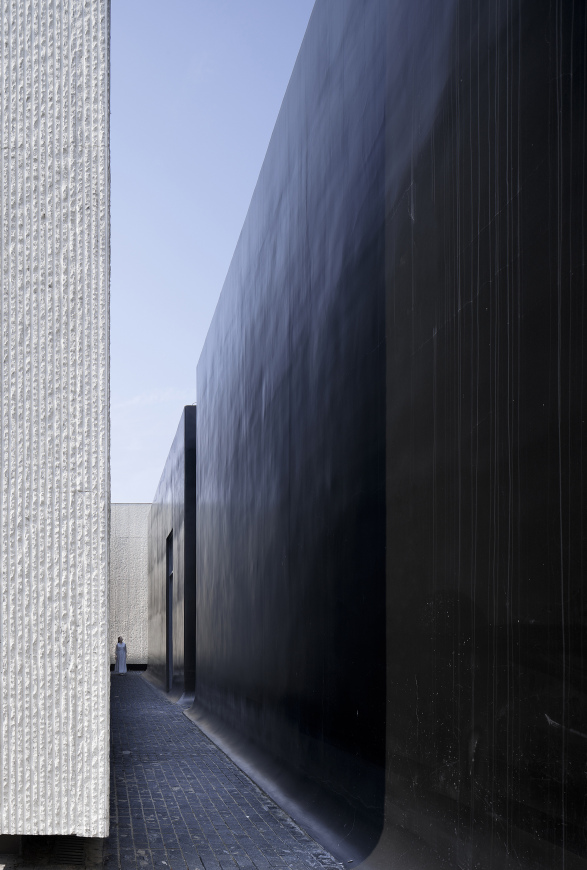


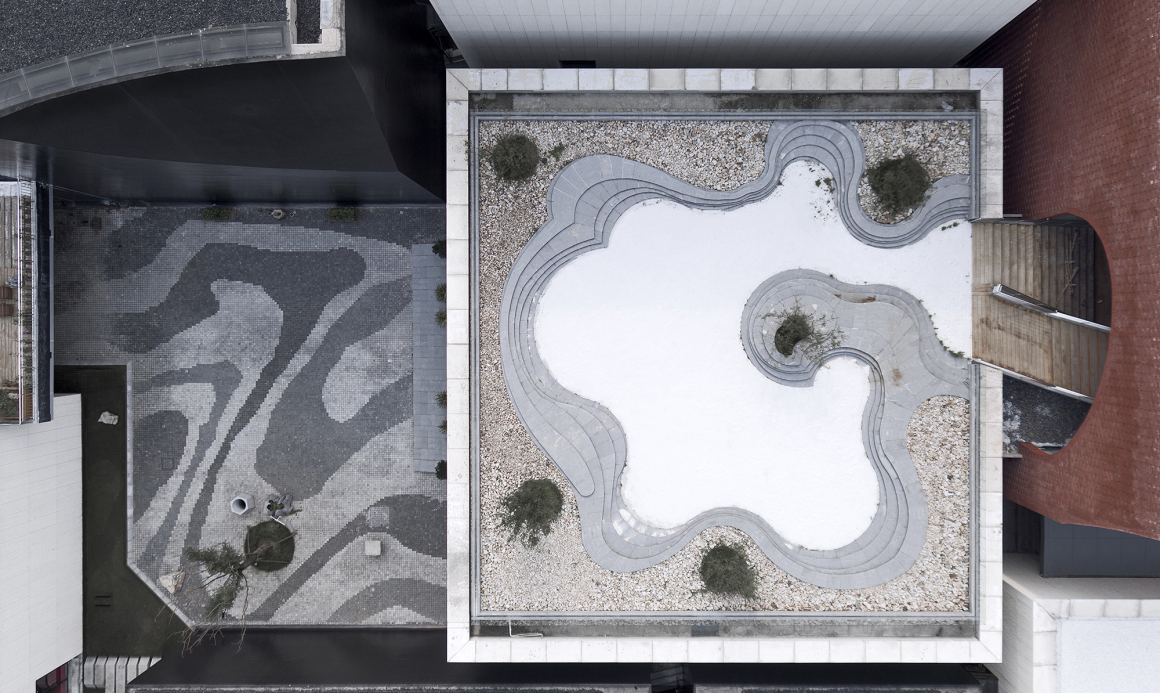

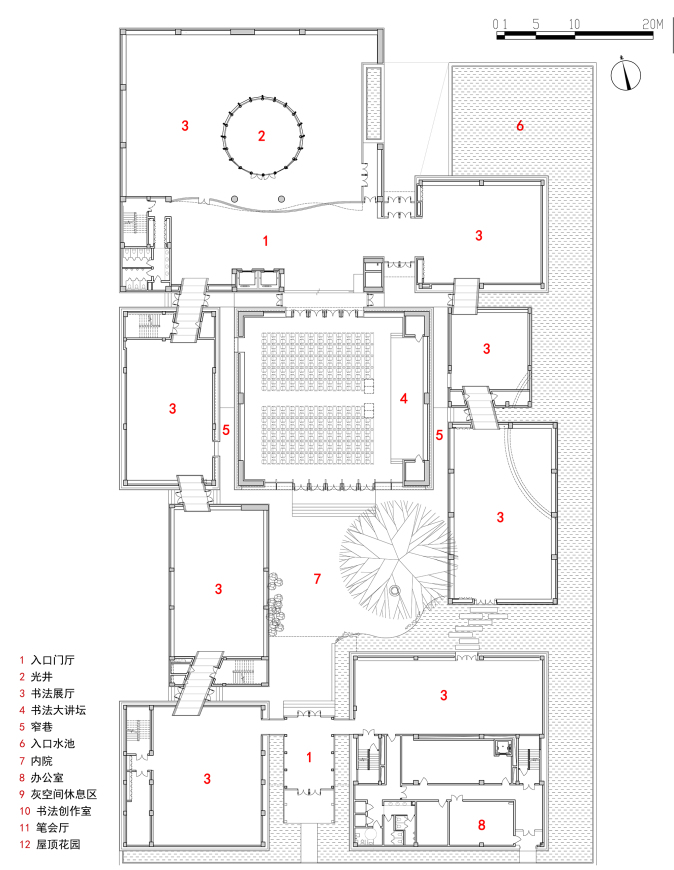
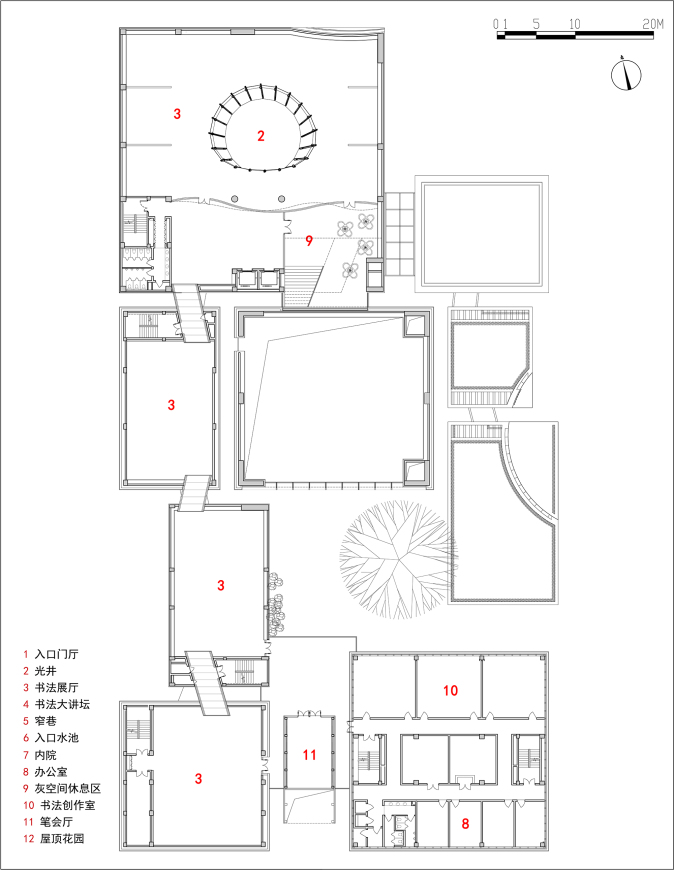
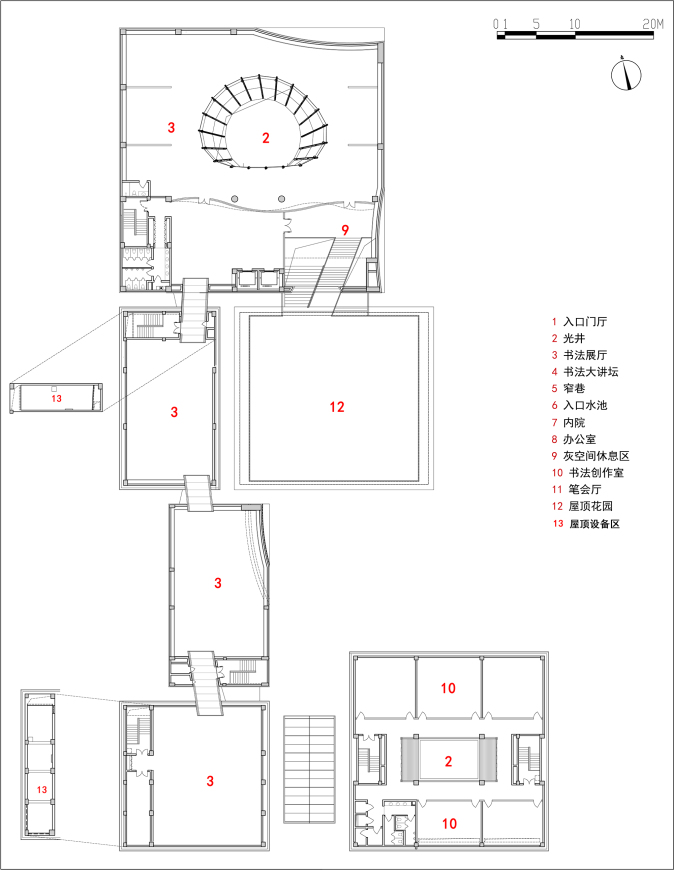
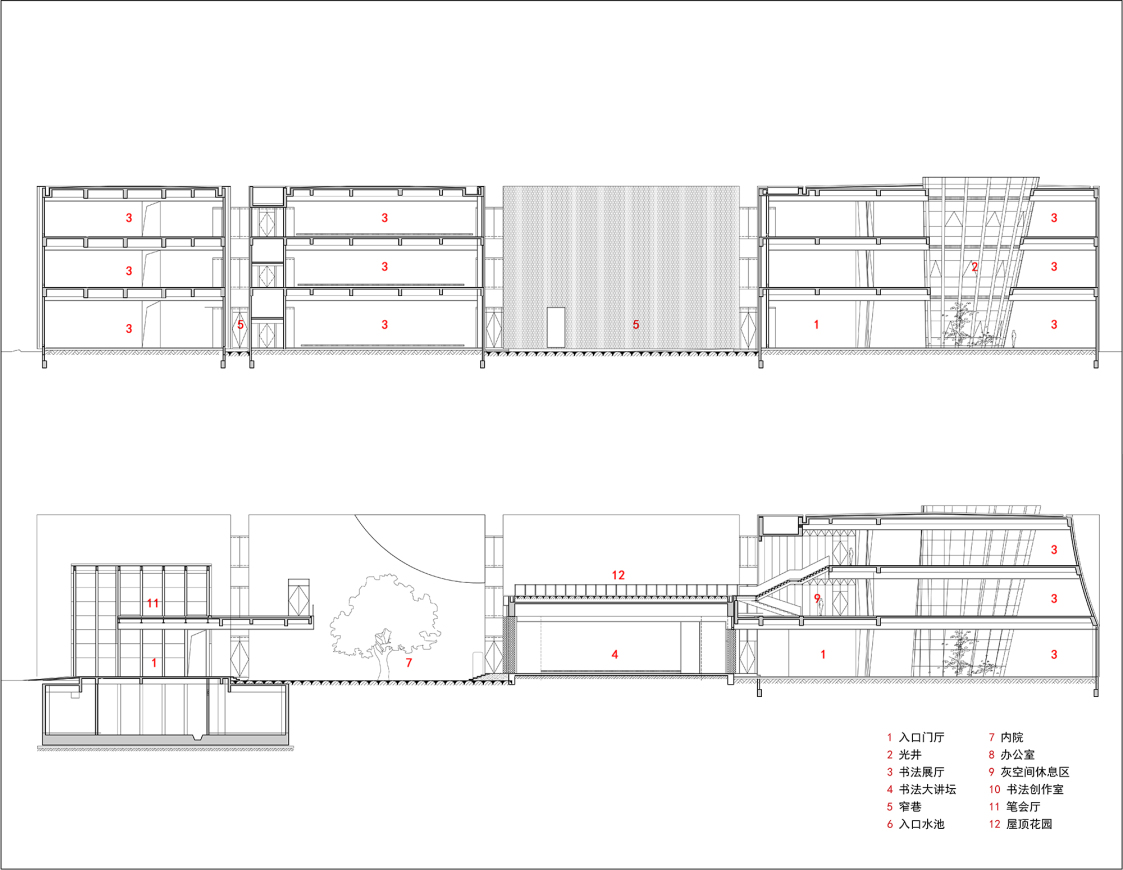
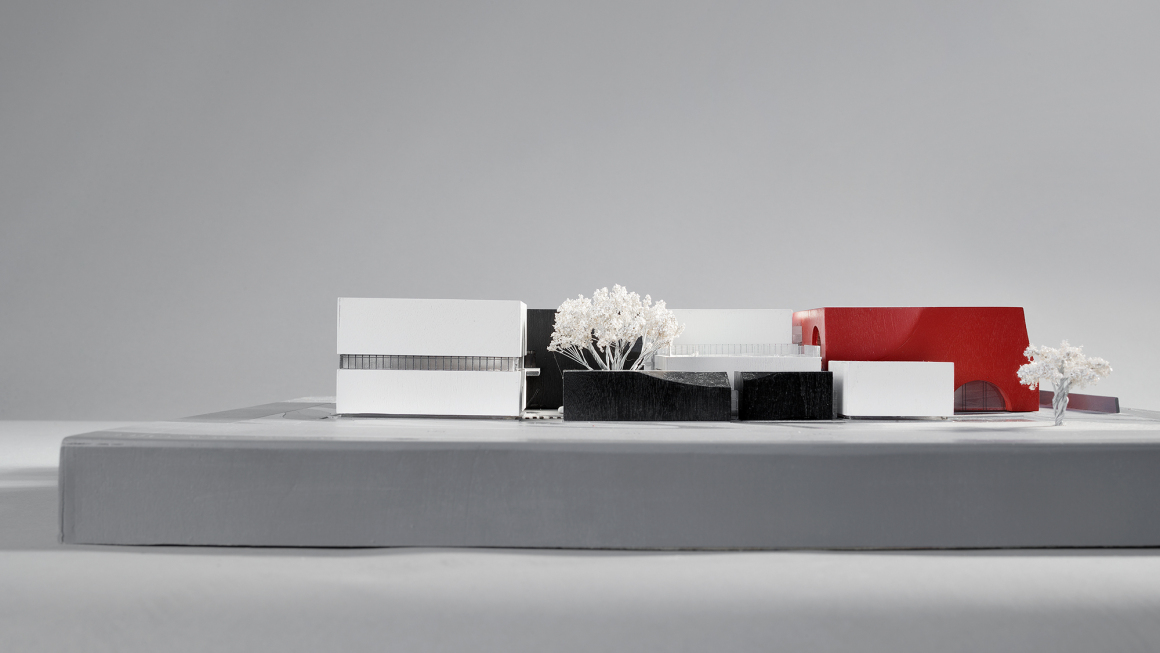
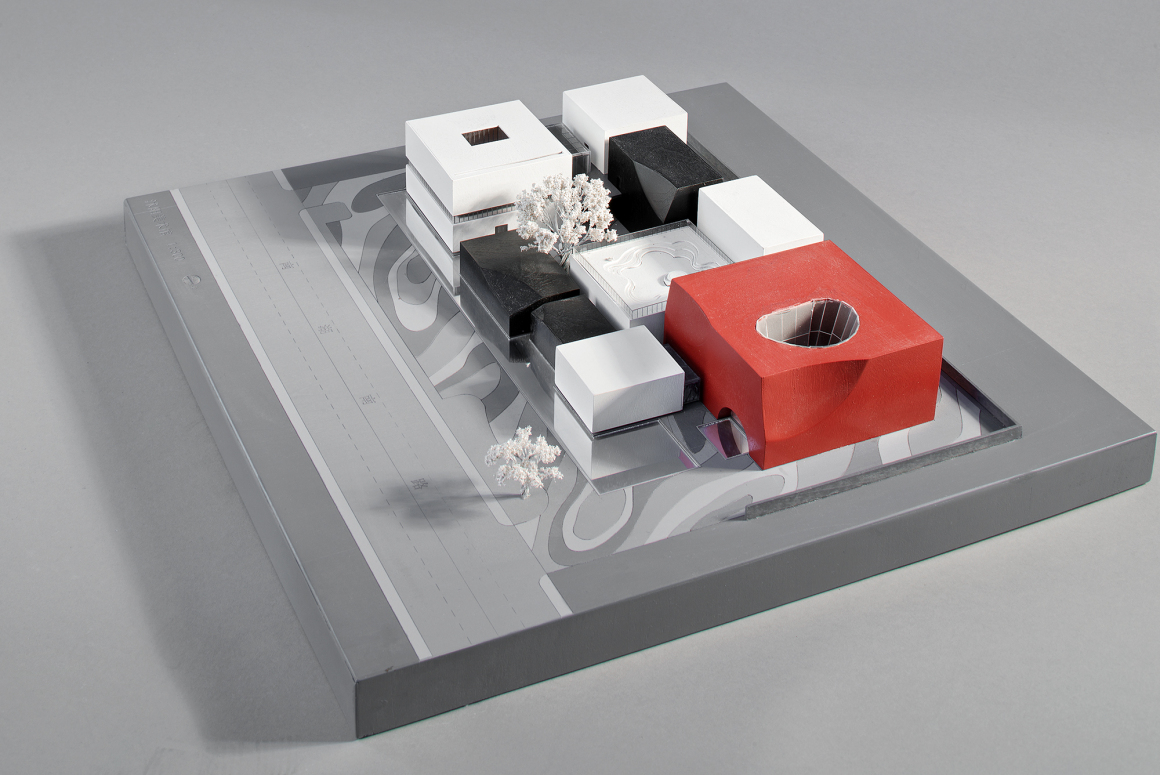


0 Comments